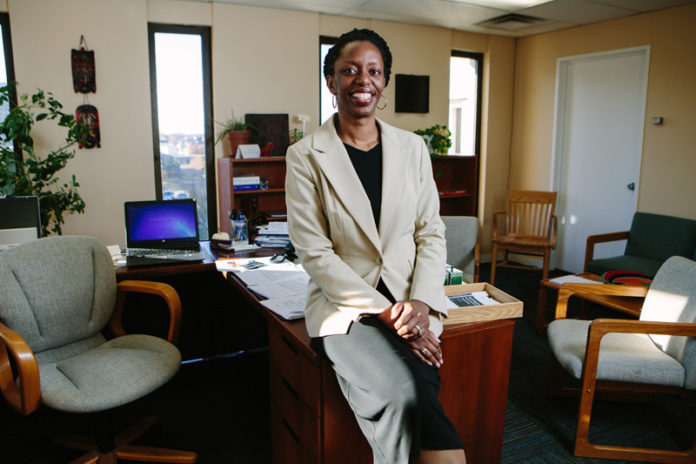
Dr. Nicole Alexander-Scott was named director of the state’s Department of Health in spring 2015, bringing a wealth of experience to the post, including working as a specialist in infectious diseases for children and adults at Rhode Island hospitals affiliated with Brown University and the state health department. Originally from New York, she attended Cornell University, majoring in human development and family studies, and subsequently graduated from medical school at SUNY Upstate Medical University at Syracuse in 2001.
What is your view of 2015 in Rhode Island in terms of the state’s economic health?
We know it’s important to have a healthy workforce, which is linked to the economy, and addressing unemployment is a key component. Last year, unemployment was down to 9,400 with the labor force increasing by 5,600 since October 2014. We trend that data, and it’s a good sign, but we recognize that the numbers need to improve and directly link to the social and environmental impacts of health. It all impacts our population’s health outcome; if people aren’t healthy, you don’t have a healthy workforce or a healthy economy. That’s a definitive linkage.
On behalf of the state, we address those social and environmental determinants of health, and partner with the R.I. Department of Labor and Training to work together. Also, Scott Jensen, the director of labor and training, is on the Children’s Cabinet Rhode Island with me and others to highlight and understand how jobless numbers impact the health of our workforce.
What do you see for 2016 in terms of Rhode Island’s economic health?
Next year we have very strong tools in place to help. Since we know economic health is connected to a healthy workforce and the health of our population, through a State Innovation Model grant from the federal Centers for Medicare and Medicaid Services, there is a plan to address that. We’re thrilled to be a core contributor, and have just released our R.I. Department of Health 2015 Statewide Health Inventory that has a comprehensive assessment of all types of health care across the state. We welcome people to see it at www.health.ri.gov/data/healthinventory.
That plan, which should be completed in 2016, will be a key pearl in the necklace to implementing health goals. And those goals will serve as a driver to improve health outcomes and getting to a place to have a healthy workforce that will build and maintain a healthy economy.
If you could, what one thing would you like to see happen in Rhode Island in 2016?
I’d love to see us be able to use the data from the health inventory to help drive action so that health services are identified and barriers overcome, to see population health improvements, that’s the heart of it. And working together with other departments and groups to talk about unemployment, education, housing, access to food, healthy work environments, all necessary to a healthy workforce. Continuing to partner with Scott Jensen and others, to see how we can tie together the challenges he and others are dealing with, is essential. Those worlds may not have crossed before, but as a department I see us as a significant convener and collaborator. What’s being done at labor, the Department of Children, Youth & Families and other departments all works toward getting the workforce healthy. We see the governor talking about a strong economy, and I feel responsible to do everything I can to help.
How is the health of your department’s workforce?
The number of Department of Health employees over the past decade has decreased significantly, similar to what’s happened nationwide. We had 500-600 jobs and now we have just over 400. That really requires and challenges us to do the job we do more efficiently, more creatively. The work still has to get done. The staff knows it, they don’t have to be told and are doing the best job they can.
For example, in the Department of Health we license 139,000 people, and when you include health facilities, that jumps up to 160,500 licenses we issue. Those licenses cover things like dentistry, hospitals, managed care, pharmacies and pharmacists, physicians, nursing homes, the food-service industry, laboratories, public-water systems, cosmetologists, barbers, hairdressers, X-ray and radiation equipment. No matter what staff we have, we have to figure out a way to make that licensing experience efficient and effective in a way to help these people fulfill what it is they want to do. •












